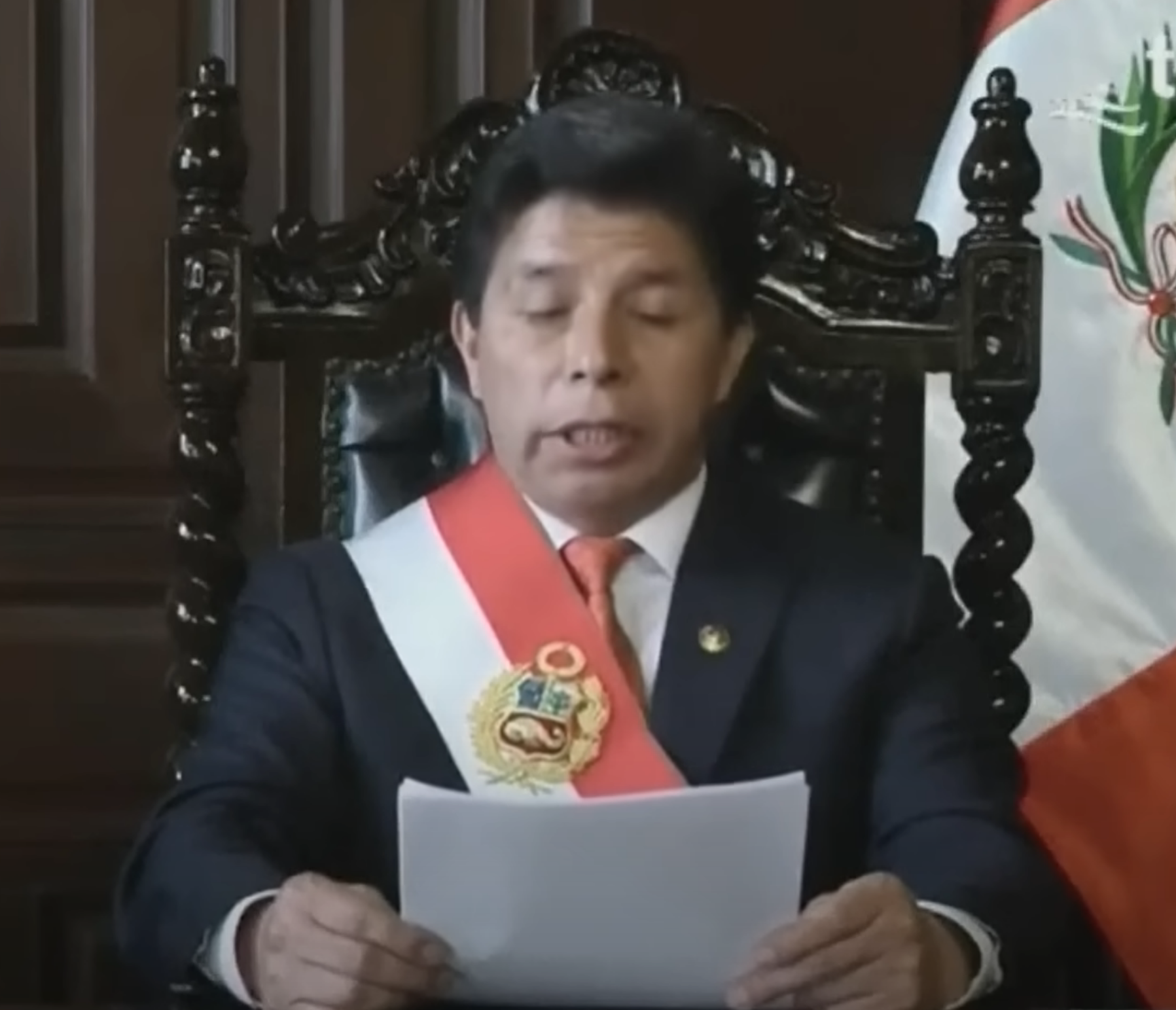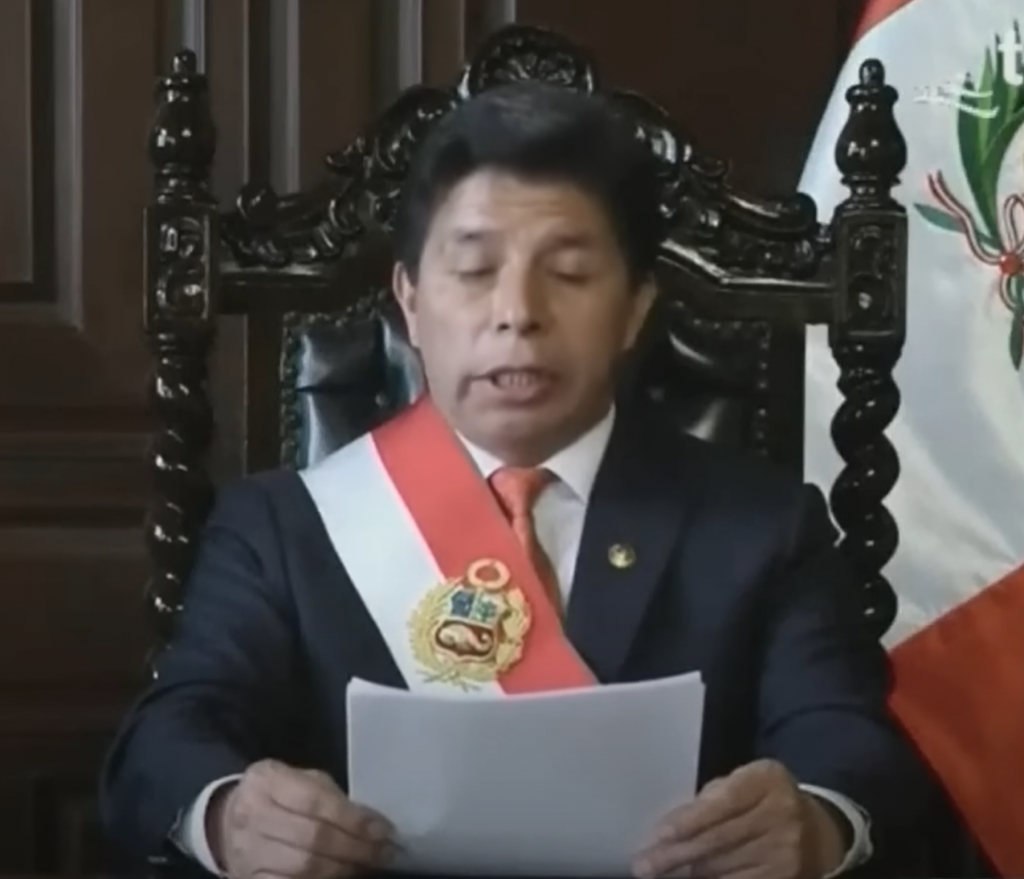On Wednesday 7 December, Peruvian polive removed President Pedro Castillo from office and placed him under arrest. This followed Castillo’s announcement that he was dissolving Congress and establishing an emergency government.
Peru’s right-wing dominated Congress was set to vote on a motion of no-confidence against Castillo that day, when he announced the body would be dissolved. In a televised statement, the President said “in response to the citizen outcry throughout the country, we have made the decision to establish an emergency government aimed at restoring the rule of law and democracy.”
He attacked Congress for causing chaos “in order to control the government, bypassing the popular will and constitutional order.” Castillo stated that elections would be held as soon as possible, with the new Congress drafting a new constitution within nine months. He also declared his intention to reorganise the National Board of Justice, Public Ministry, and Constitutional Court.
However, as the Congress voted to impeach Castillo, accusing him of “moral incapacity”. Only 6 members voted against the decision, with 101 in favour and 10 abstaining. Vice President Dina Boluarte was sworn in as President later that day.
Castillo was arrested by national police, and has since been moved to a maximum security facility, the Special Operations Directorate, in eastern Lima.
Peru’s attorney general, Daniel Soria Luján, filed a complaint against Castillo “for the alleged commission of the crimes of sedition, abuse of authority and serious disturbance of public tranquility.”
This is the third time the Peruvian Congress has attempted to oust Castillo, with two failed attempts in December 2021 and March 2022.
It is clear that right-wing interests in the Peruvian state could not allow Castillo to reshape the constitution and judicial institutions. Obstructing the President only worked so far, and so when he tried to bypass the opposition entirely, they simply removed him.
The President of Peru’s Constitutional Court, Francisco Morales, accused Castillo of carrying out an “ineffective coup”, saying “nobody owes obedience to a usurper government.”
Evo Morales, former President of Bolivia, criticised Castillo’s removal and arrest, arguing “We see once again that the Peruvian oligarchy and the U.S. empire do not accept that union and indigenous leaders reach the government to work for the people.
“We ask that security, the right to life and peaceful and democratic coexistence be respected. That the Constitution and the highest interests of the Peruvian people be respected above all.”
The Foreign Ministeries of Colombia, Argentina, and Chile all released statements condemning attacks on democratic institutions, with the Colombian response stating that “democracy demands the recognition of the popular will expressed both in the elections for president and for congress.”
Mexican President, Andrés Manuel López Obrador, found it “regrettable that, due to the interests of the economic and political elites, since the beginning of Pedro Castillo’s legitimate presidency, an atmosphere of confrontation and hostility has been maintained against him until leading him to make decisions that have served his adversaries to consummate his dismissal with the sui generis precept of moral incapacity.”
Mia English, is Challenge’s News Editor




